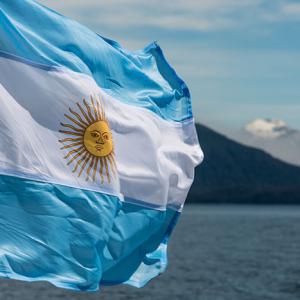By Judith Ugwumadu | 14 April 2014
African countries are vulnerable to a slowdown in emerging markets and need to invest in growth in their own agricultural and manufacturing sectors, according to the chair of the African Caucus group of finance ministers and central bank governors.
Speaking at the ‘African Consultative Group’ discussion during the World Bank Group-International Monetary Fund Spring Meetings in Washington on Sunday, Bader Eldin Mahmoud Abbas agreed with IMF managing director Christine Lagarde that economic prospects for the continent were promising.
Both noted that the main downside risk to the outlook was a larger-than expected slowdown in emerging economies, especially China, as well as fiscal vulnerabilities and security concerns in a number of countries.
Subsequently, African countries have been urged to continue in their efforts to ‘preserve macroeconomic stability’ and ‘build resilience’.
Finding the right balance between strengthening reserves positions, raising private and public investment and ensuring appropriate levels of social spending would be critical in the period ahead, while for some countries it will be important to strengthen their fiscal positions and contain debt accumulation, suggested the African Consultative Group.
Abbas said: ‘While sub-Saharan Africa has so far sustained a healthy growth rate, it could be vulnerable to a slowdown in emerging economies given the continents’ dependence on trade, particularly China, and on commodity prices.
‘Against this backdrop, African countries recognise that they need to do a rebalancing of their own and generate growth in sectors like manufacturing and agriculture that can benefit the population in terms of employment opportunities.’
However, he warned that access to funding remained challenging, noting that African countries were looking to the IMF to continue its effective engagement with the continent and reform their polices, including debt limits policy in fund-supported programs, with a view to facilitating greater flexibility in managing borrowing options and providing policy space to meet Africa’s tremendous investments needs.
Lagarde added: ‘The IMF will remain closely engaged with our African members to support them with financial resources and technical advice needed. In particular, we will continue devoting resources to assist North African countries in transition and fragile states to ensure economic stability and build resilience.’













